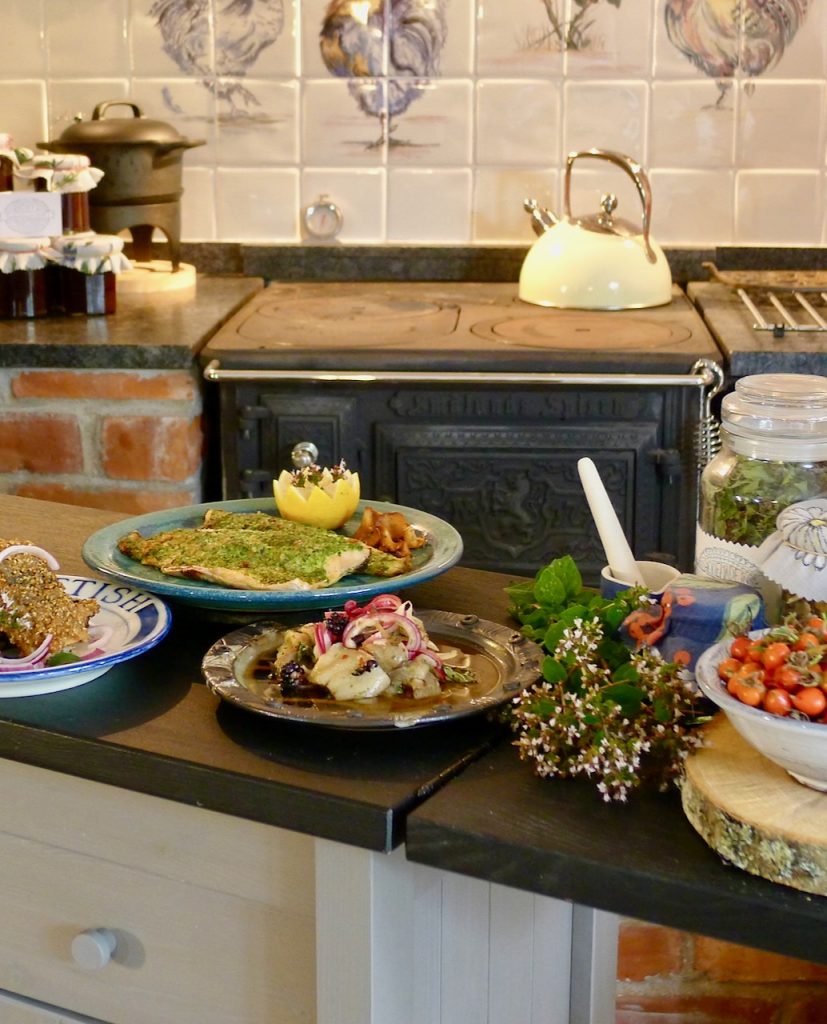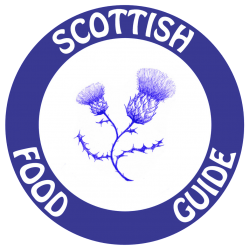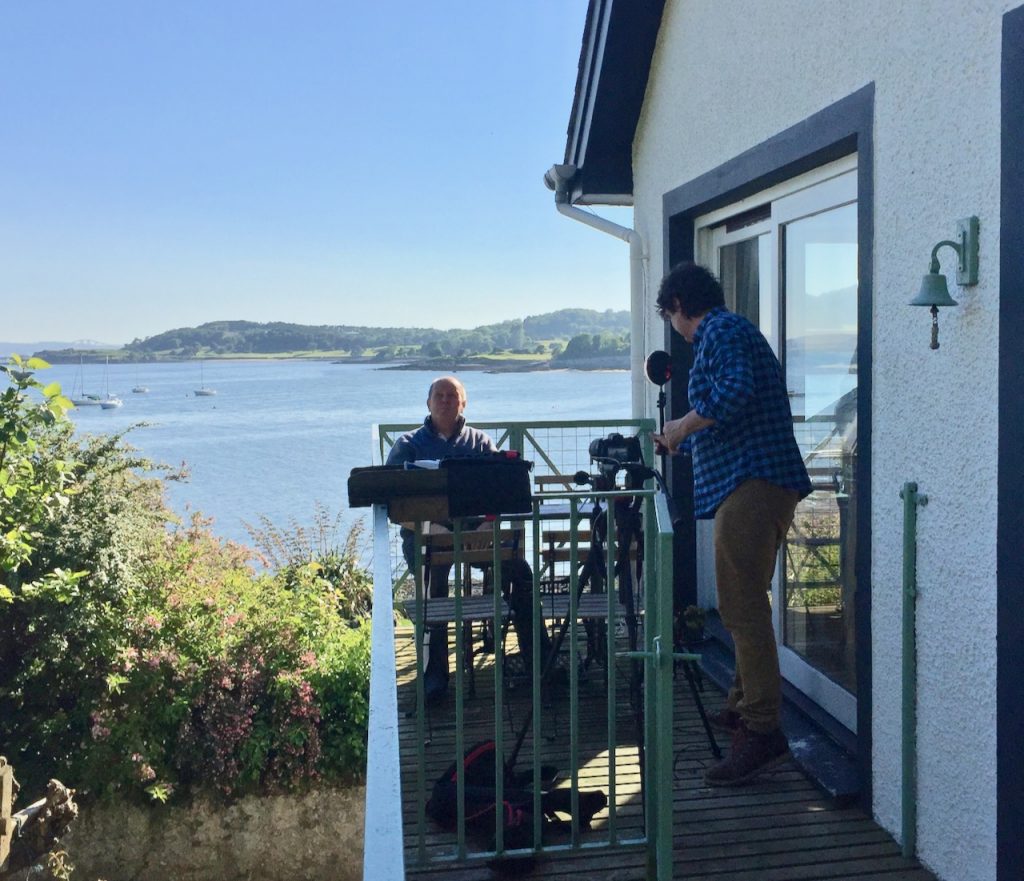Beef, climate and COP26 are fast becoming the talk o’ the steamie [the Scottish communal wash-houses, steamies, had a well-founded reputation as hotbeds of blether]. Already a defining news feature of the decade the topic is heating up as the temperature rises… but along the way so many nuances are lost.
Headlines grab generic sweeping statements, advocating rewilding or hydroponics, vertical farming or mind-boggling dairy systems….and that’s before we even start on world trade deals!!
We need to pause and dissect, look behind the headlines to see the full story, the influences …and follow the money!
Latest reports on the health of our nation do not dig sufficiently deep into differentiating between pasture-fed and feedlot or grain-fed ruminants for example, where there is a world of difference in land use, sustainability, flavour and nutrition, both in terms of dairy produce and meat. FSS (and consequently government and school education) still rely, in my opinion, on outdated, superseded nutritional advice …still advocating spreads, processed foods, minimal dairy and severely limiting red meat consumption when we live in a country with a wealth of fresh wild fish, grass-raised ruminants, good crops of seasonal veg and homegrown grains. Provenance and low food miles are not only good for climate but also for nutritional benefits. Quality does matter and it also supports our farmers.
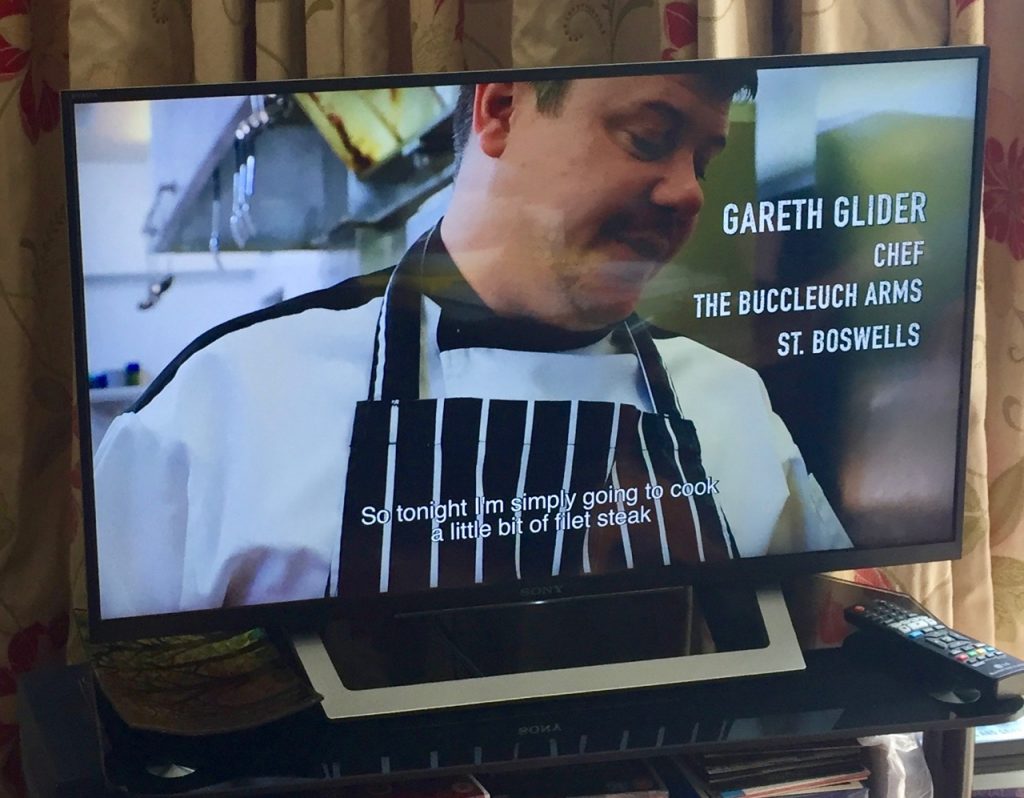
So back to beef. Over the decades – and EU has had a hand in this too – carcasses have been judged and rewarded for weight and size of cuts, not flavour or breed. This was partly due to the large continentals that became popular: draught animals that need grain to body-build – bigger engines requiring more fuel!
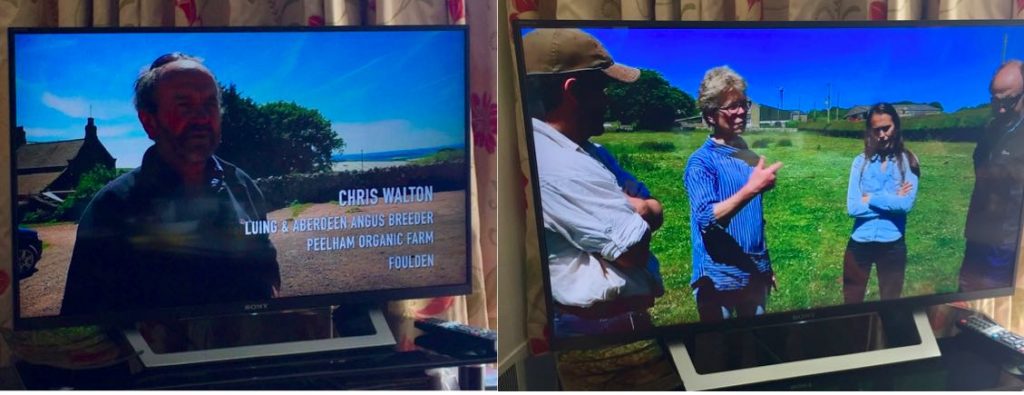
In Scotland we have Galloways, Highlanders, Shetland Kye, Ayrshire, Cadzow and Native Aberdeen Angus, and more, all perfectly happy to graze as nature intended. When pure bred they may not be giant but what they lack in size they more than make up for in flavour as I have said before in What’s the Beef?
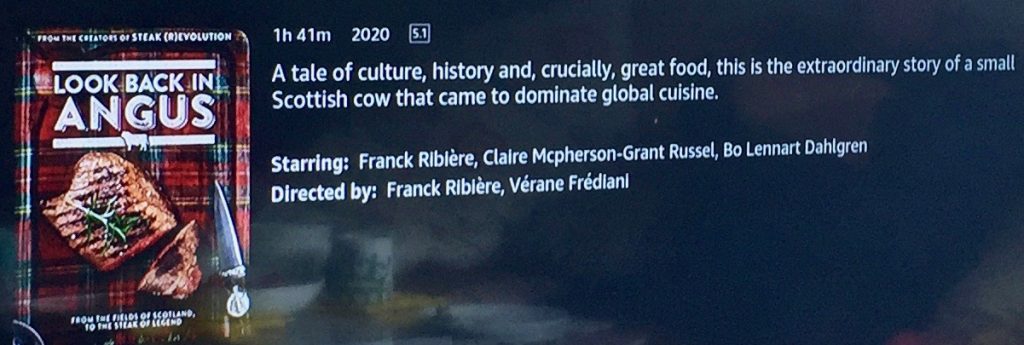
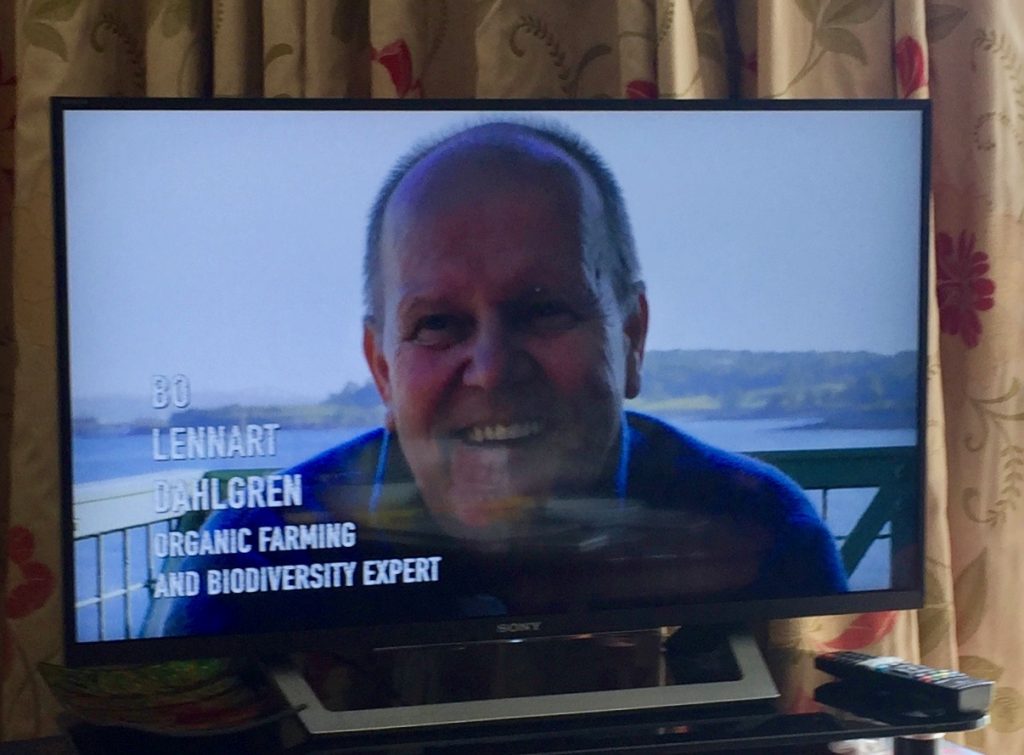
Why am I back on this soapbox…although I never really left it… because Film Director Franck Ribière has premiered his new movie, Look Back in Angus, on Amazon Prime, a sequel to Steak (R)evolution, and I highly recommend it. An excellent and eye-opening film, delving to the roots of the wee black bull… and not least because it features Hardiesmill, Dunlouise, Peelham, Buccleuch Arms, and a certain Bo Dahlgren too! And so it was one sunny day we were kindly invited to the movies at a friend’s who subscribes to AP, where we sat glued to the TV screen with lovely platters of salads and with my wee camera handy as you can see!.
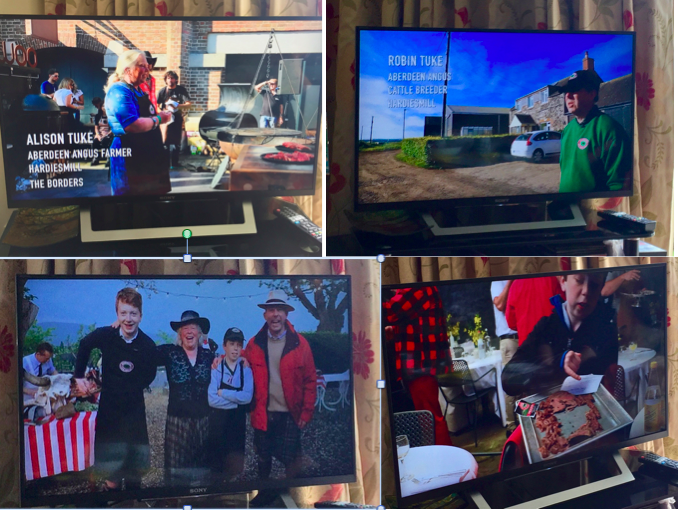
Aberdeen Angus is known worldwide; highly acclaimed yet we have a fascination for cross-breeding, developing, then telling a story that is fondly looking back yet not always quite transparent…. So Look Back in Angus does just that; seeking out the truth; reflecting on the ‘development’ of the Angus breed and finally cherishing and celebrating the pioneers and heroes – The Soutars at Dunlouise and the Tukes at Hardiesmill whose Native Bred Aberdeen Angus is recognised on Slow Food’s Ark of Taste.
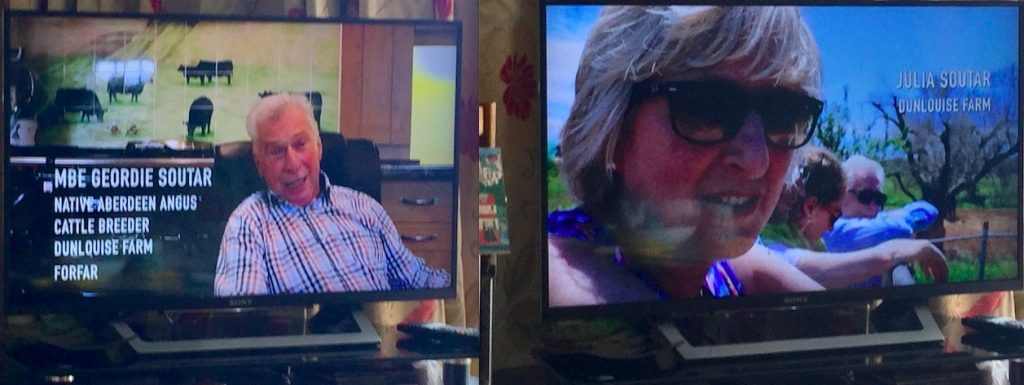
This is – and always will be – a subject close to my heart and one of the reasons I published the Scottish Food Guide Charter as the provenance of our food is so important to Scotland’s sovereignty, security and health… food knowledge and skills are being lost from our education system, even replaced with well-intentioned inaccuracies from biased sources or in the interests of misdirected cost-cutting. Films such as these can remind us of the vital importance of our food, both past and future and I urge you all to watch Franck’s movie to better understand what goes on in our food system.
We have fabulous Scottish Food Guide members growing, cooking, feeding, nurturing us with a passion and we wish them all well for they deserve our support and they in turn welcome our appreciation of them. In a world where the news seems pretty dismal at times we must celebrate and encourage the good things in life.
***
In my August news I shall take a look at wild foods in advance of Scottish Food Fortnight and Foraging Fortnight so any members featuring foraged foods on their menus are welcome to get in touch if they would like to collaborate over the fortnight in September.
